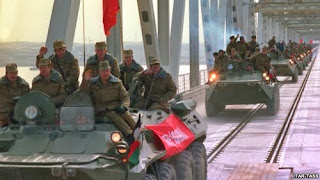We need to build into our communities the resilience to cope with flooding - sadly in a warmer wetter world - flood events are going to become more common - we need to think and act smarter, with shifting the focus from flood prevention to flood avoidance. Our communities, our nation and our world are becoming more prone to extreme weather, torrential downpours and periods of warmer or hit dry weather.
Dealing with the consequences of this on a marco level is one thing. Small relatively simple steps to store water for later use, with water butts (if only to water garden plants and vegetables) can make a very practical if minor use of excessive rainfall and runoff if only very locally. Aside from helping to save water and to cut water bills.
Local water storage and management is increasingly part of intelligent urban design, something that is becoming more common and necessary in a warmer wetter world. On a larger scale this is something we will all have to do, naturally some people and nations are a head of the curve when it comes to re-engineering their infrastructures to deal with extreme weather events.
The concept of the sponge city or urban sponge. something that is embedded and central to urban planning should now be coming into its own, particularly in Wales, with our urban areas being redesigned or designed from the start to soak up, and store deluges of torrential rain to prevent damaging and dangerous flash flooding but without the construction of large scale flood defences.
The Dutch, for historical and geographical reasons have been involved in serious water management for centuries. Yet in a warmed world, even the Dutch are having to take long hard fresh look at how they deal with the consequences or severe weather and more regular flooding.
Many urban areas have developed with any serious co side ration of the impact of flash flooding - back in July, in localised parts of London heavy torrential downpours saw local drainage systems overwhelmed - as streets became rivers, homes and businesses were flooded and public transport ( including trains and tubes ) brought to a standstill. In London, heavy rain, which fell on hard surfaces, overloaded drainage and severe flooding resulted.
Elsewhere things are done differently - the songs city concept has been embraced in parts of Berlin, were green roofs have been created with living plants, mosses and grasses, with plants Boeing on vertical walls, with courtyards planted with vegetation, etc - all of which helps to hold and slow excessive water. One beneficial side effect, if that the retained water helps to cool local neighbourhoods as the water evaporates from vegetation and the ground.
In the Netherlands, the concept of making room for the river has been embraced to give space for flooding, something which slows the speed of riverine flooding. In Amsterdam, they have constructed rain gardens which have been created from parking areas, which are designed to collect water, people have also been encouraged to remove paving from their gardens, to grow plants and to build ponds to help with runoff and water storage.
In the city of Rotterdam, public places have been turned into what are called water plazas which turn into shallow lakes during periods of heavy rain, when times are drier these locations are used as public parks and playing fields. Underground car parks have been redesigned or specifically built so that lower levels can be used to store storm related flood waters - which can then be pumped dry when water levels have dropped.
These concepts are only slowly being looked at a adopted within these islands, we still tend to defy logic and build on flood planes, but, tend not to harden infrastructure of buildings ( commercial and domestic ) or to build with flooding in mind e.g. build smart using ground floors for storage or parking and raise plug and power points, protect utilities and drains, and put washing machines, fridges sand freezers up off the ground.
Some urban areas, within these islands, have slowly begun to adopt the concept, there are examples in Llanelli and at West Gordon Park, near Manchester - were porous pavements, shallow depressions, grass berms and small ponds help to absorb and direct surplus water into rain gardens or natural sumps or green spaces that double up as parks in drier periods.
These are small steps, in a warmer, wetter world with more erratic and extreme weather events the problem of flooding will only get worse. As homeowners pave over their gardens for parking spaces the problem will worsen. The concept of the urban sponge is one that we all need to embrace, along with smart design and smart water management to help to reduce or alleviate urban flooding.


